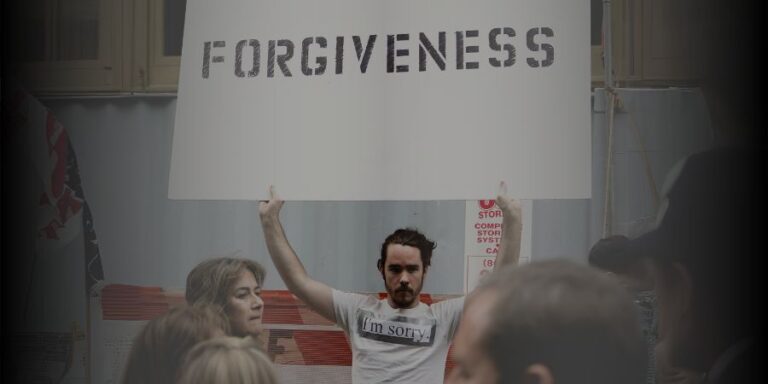Throughout this season of Lent, our Peace Fellows will offer weekly reflections that will guide us as we confess our complicity, reject the temptations of power, and move toward one another in love. Watch for those reflections, delivered once a week on our blog throughout Lent and join the conversations on Instagram and Facebook.
There seems to be a chronology to the work of forgiveness: forgiveness within leads to forgiveness without. According to the patterns of forgiveness we see in Jesus, we first do the internal work to forgive others before we move to reconcile with those who have done us wrong.
Perhaps this chronological work of forgiveness includes how we might forgive God.
In Adele Calhoun’s Spiritual Disciplines Handbook, she describes forgiveness as “a costly, heartrending process that refuses to ignore or minimize wrongdoing. It places blame. It condemns the wrong.” But forgiveness takes another step. It separates the wrongdoer from the wrong done. It refuses to mount injustice onto injustice. Forgiveness is an act of justice. By forgiving the wrongdoer, we take a divine step, making room for justice to restore our enemy as a friend.
I recently noticed the power of forgiveness while watching the Netflix series “I am a Killer.” Through Interviews of murderers and the family of victims, the incarcerated sometimes appear more free than those outside the walls of the prison. When victims choose not to forgive, a prison of their own is built and traps them within its walls. Madeline L’Engle says, “Hatred harms the hater more than the hated.” This proves true when forgiveness is ignored.
During Lent, I spend 40 days acknowledging my sin of unforgiveness and harboring bitterness toward God and others. A few challenges I face include: How do I forgive God for my youngest son being born without a left hand? How do I forgive God for taking the life of my 12-day-old great niece just last month!? How do I forgive God for my brother-in-law’s debilitating struggle with schizophrenia? I ask these daily during Lent. And while God often responds with silence, when I open the Bible Jesus gently reminds me of his words spoken from the cross, “Father, forgive them, for they know not what they do.”
Jesus modeled forgiveness to those thrusting a spear into his side. Forgiveness to those who claimed him as Lord and denied him on the same night he was betrayed. Forgiveness…to me, when I dismiss the struggle of those I’m privileged to ignore. Forgiveness when I use wealth to subjugate another so I can wear the latest trend. Forgiveness. Forgiveness. Forgiveness.
Therefore, because of his love, I forgive God and with gratitude take my son to football practice. I forgive God and sit in silence, mourning with my nephew and his wife. I forgive God and take my brother-in-law out for a drive so he retains connection to family.
Here is an exercise you might try, taken from Calhoun:
Prepare for your next Communion by naming and listing your wrongdoing to God. Consider what you might deserve for this wrongdoing. When you eat the bread and drink the cup, savor the deliciousness of knowing that none of your wrongs stick to you.

Nathan Geer is the Director of Residence Life at George Fox University in Newberg, OR. He’s a Reconciling Leader committed to helping leaders and institutions reach for their potential in faith, leadership, education, and relationships.
Nathan is a Global Immersion Peace Fellow and a 2024 Leadership Cohort alum.

